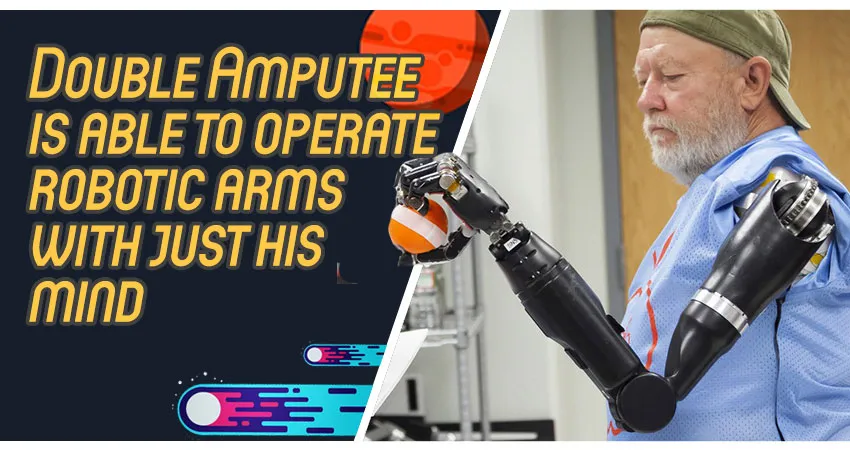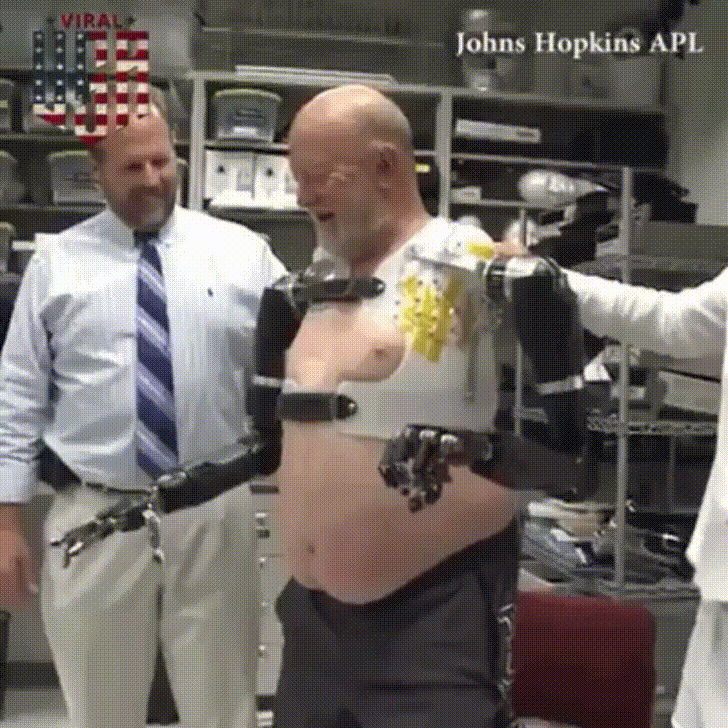
Technology is allowing us to do some seriously tremendous things.

Robotics arms for amputee patients are no longer a science fiction fantasy but a reality created by U.S. scientists.
Thought controlled artificial limbs have been developed by a group of researchers at the Johns Hopkins University Applied Physics Laboratory (APL) in Laurel, Maryland.
Leslie Baug, who lost both arms in an electrical accident 40 years ago became the first patient to use the robotic limb system by just by thinking about moving his arms.
"Simple things like that the most people never think of and that thing is re-available to me," said Baugh.
Neurally controlled arms are designed to substitute the limbs with almost human arm degree of freedom, researchers said on laboratory website.
"Advanced algorithms, that really looks at high-density electrode array on the chest mussels which we reinnervating. It looks at almost signature symphony muscle activity information, and we take this information translate that to the actual movements within a prosthetic," said Albert Chi, Johns Hopkins Trauma Surgeon
To start using his robotic arms Baugh had to undergo surgery at Johns Hopkins Hospital known as targeted muscle reinnervation and the team of researchers praise his accomplishments and ability to adapt to the robotic system.
Scientists believe this is just the start for future developments saying on laboratory website that "the next five to 10 years are going to bring phenomenal advancement"
"It is not just an accomplishment but opening up the frontiers in realizing that there is so much more to learn," said Courtney Moran, a prosthetist working with Baugh.
The research, called Revolutionizing Prosthetics Program, is almost at decade long project to create a neurally controlled artificial limbs to amputee patients is funded by the Defense Advanced Research Projects Agency (DARPA).
